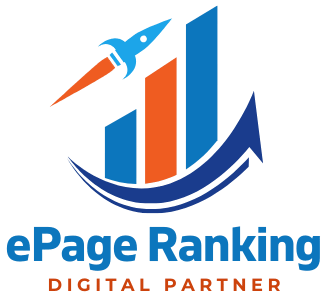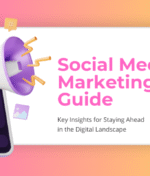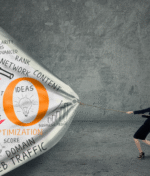
- July 21, 2025
- by mohdiklakh1997
- Blog
In a world where technology evolves by the second, web development is undergoing a massive shift—driven not by new programming languages or frameworks, but by artificial intelligence. From design automation to enhanced user experience, AI is changing how websites are built, managed, and optimized.
For businesses aiming to stay relevant online, understanding how AI reshapes website development is no longer optional—it’s essential.
What Is AI in Web Development?
Artificial Intelligence in website development refers to the integration of smart algorithms that can make decisions, learn from data, and even predict future behaviors. These AI systems are being used to write code, personalize content, optimize search engines, and streamline user interaction.
Rather than replacing developers, AI acts as a powerful partner—handling repetitive tasks, enhancing accuracy, and opening up new creative possibilities.
1. AI-Driven Website Builders
One of the most visible transformations is the rise of AI-based website builders. Tools like Wix ADI, Bookmark’s AIDA, and Zyro use AI to create entire websites from user input—such as business type, design preferences, and content goals.
Key benefits:
- Faster development: Build a fully functional site in minutes.
- Custom layouts: AI analyzes your brand and industry to generate a design that fits.
- No coding required: These platforms allow non-developers to launch sites easily.
For small businesses and entrepreneurs, this shift lowers the entry barrier and reduces time to market dramatically.
2. Smart Coding Assistants
AI doesn’t stop at visual builders. Developers now use AI coding tools like GitHub Copilot and Amazon CodeWhisperer to write, suggest, and debug code more efficiently.
How it helps:
- Auto-suggestions reduce development time.
- Fewer bugs due to intelligent error detection.
- Enhanced learning for junior developers via instant feedback.
At Epage Ranking, we integrate these tools into our workflow to streamline custom web application development—ensuring faster delivery without compromising on quality.
3. Personalized User Experiences
One-size-fits-all websites are fading out. AI allows dynamic personalization based on:
- User location
- Browsing behavior
- Device type
- Purchase history
AI tools like Adobe Sensei and Dynamic Yield let websites adjust content, layout, and product recommendations in real-time.
This level of personalization has a direct impact on:
- Bounce rates (users stay longer)
- Conversion rates (more likely to take action)
- Customer satisfaction (improved UX)
Whether it’s a product recommendation carousel or a chatbot greeting based on past visits, personalization powered by AI keeps users engaged and returning.
4. AI Chatbots & Virtual Assistants
Customer service is no longer restricted to human agents. AI-powered chatbots like Drift, Tidio, and ChatGPT-based integrations now answer queries, guide users, and even complete transactions.
Advantages:
- 24/7 availability
- Instant responses
- Cost savings on support teams
- Improved lead capture and follow-ups
For eCommerce or service-based websites, an intelligent chatbot becomes a silent salesperson that never sleeps.
5. AI in UX and UI Design
AI tools now analyze user behavior data to optimize UI elements—like button placements, color contrasts, navigation structure, and form design.
Tools such as Uizard and Framer AI use design intelligence to:
- Generate wireframes
- Suggest layout changes
- A/B test visuals
- Improve accessibility
This automation leads to smarter interfaces that align with user habits and expectations, reducing friction and enhancing usability.
6. SEO Optimization with AI
Search Engine Optimization (SEO) is more data-driven than ever—and AI is at the heart of it. AI SEO platforms like Surfer, Clearscope, and MarketMuse analyze top-performing content, keywords, and structure to help businesses craft content that ranks.
AI also:
- Optimizes meta tags
- Analyzes competitors
- Monitors ranking patterns
- Detects content gaps
At Epage Ranking, we combine AI insights with expert human strategy to help businesses achieve long-term SEO success.
7. Predictive Analytics for Smarter Websites
AI doesn’t just react—it predicts. With tools like Google Analytics 4 and Piwik PRO, websites can now:
- Forecast traffic trends
- Predict user drop-off points
- Suggest next steps in a sales funnel
- Measure content performance in real-time
This data-driven foresight allows businesses to pivot quickly, optimize campaigns, and allocate resources better.
8. Automated Testing and Quality Assurance
Testing every aspect of a website—across browsers, devices, and use cases—can be overwhelming. AI testing tools such as Testim, Applitools, and Selenium with machine learning reduce this burden.
AI-powered testing ensures:
- Quicker detection of layout bugs
- Continuous monitoring
- Adaptive testing based on user behavior
- Reduced human error in QA
This results in more stable, secure, and high-performing websites.
9. Voice Search and Conversational Interfaces
With the rise of voice-enabled devices (Alexa, Siri, Google Assistant), websites must adapt to voice queries. AI allows sites to:
- Recognize and process voice commands
- Return optimized voice search results
- Integrate speech-based navigation
Optimizing for voice search not only boosts accessibility but also future-proofs your site against evolving user behavior.
10. Content Creation and Optimization
AI tools like Jasper, Copy.ai, and ChatGPT are being used for content generation—from blogs to product descriptions. However, the most effective approach is human-AI collaboration.
Epage Ranking uses AI to:
- Generate content briefs
- Suggest keywords
- Rewrite underperforming content
- Create multilingual content at scale
This results in faster turnarounds and greater content consistency.
Challenges and Ethical Considerations
While AI accelerates web development, it’s not without challenges:
- Bias in algorithms: AI can replicate prejudices in its training data.
- Security concerns: More automation can create more vulnerabilities.
- Over-reliance: Blindly trusting AI can lead to generic, impersonal results.
That’s why a balanced, human-led strategy—supported by AI—is key.
Why This Matters for Businesses in 2025
In today’s competitive digital environment, websites are no longer static brochures. They are dynamic, interactive, personalized platforms designed to convert and engage.
Businesses that embrace AI in their web development process will:
- Launch faster
- Spend less on repetitive tasks
- Offer better customer experiences
- Rank higher in search engines
- Gain insights into user behavior
At Epage Ranking, we help clients harness the power of AI not just for web development—but for digital transformation.
Final Thoughts
AI is not the future of web development. It’s already here—changing the rules, tools, and timelines of how websites are imagined and built.
From personalized design to predictive performance, artificial intelligence makes websites smarter, faster, and more intuitive. The companies that learn to integrate AI meaningfully will not only outperform competitors—they’ll redefine the digital experience for their customers.
🚀 Ready to Upgrade Your Website with AI?
Let Epage Ranking guide your transformation.
We blend human expertise with AI tools to build websites that perform, engage, and grow.
👉 Contact us today at: https://epageranking.com/

















